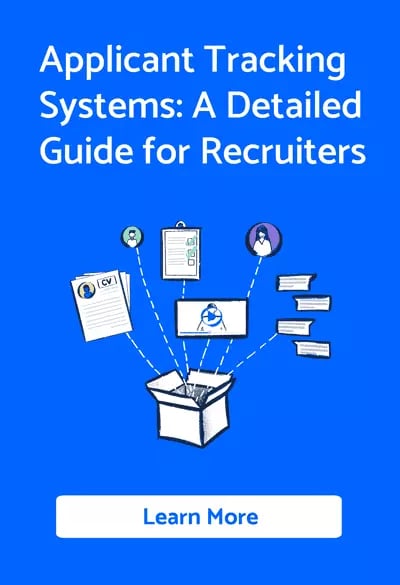In the dynamic world of business, where priorities can shift like the tide, maintaining a steady focus on hiring can be challenging. This is particularly true when other aspects of the business demand immediate attention.
However, overlooking the hiring process can be a costly misstep. According to a study by the Society for Human Resource Management, companies that fail to prioritise hiring experience a 19% higher turnover rate.
This article explores effective strategies to keep the hiring process in check, ensuring it doesn't fall by the wayside, even when other priorities loom larger.
For businesses looking to embrace technology in their recruitment process, GoHire offers an innovative Applicant Tracking System that streamlines hiring, making it more efficient and less time-consuming.
For British businesses, the stakes are high.
A study by Oxford Economics pinpoints the cost of replacing a staff member in the UK at an average of £30,000.
This figure includes the loss of productivity and the costs associated with finding and training new employees.
Such statistics underscore the importance of a well-managed hiring process, regardless of its priority status at any given moment.
Try GoHire Free Today 🚀
GoHire is the ultimate solution for startups and SMBs to simplify hiring and hire the best people, fast.
The Strategic Approach
1. Data-Driven Forecasting
Utilising data-driven forecasting is crucial in managing hiring efficiently.
A LinkedIn report indicates that while 83% of talent professionals acknowledge the importance of workforce planning, only 36% believe their company does it effectively.
By analysing employee turnover trends, projecting business growth, and examining industry hiring patterns, you can anticipate future hiring needs more accurately.
For instance, a retail business might notice a seasonal pattern in staff turnover and plan their hiring accordingly.
2. Building a Talent Pool
Maintaining a talent pool is akin to having a safety net. It ensures a ready reservoir of potential candidates, reducing the time and resources needed for future hiring.
Aberdeen Group’s research indicates that companies with a robust talent pool can shorten their hiring process by 10 days on average.
To build this pool, engage with potential candidates through LinkedIn, attend industry networking events, and maintain an active presence.
3. Efficient Use of Technology
Technology can significantly streamline the hiring process.
With 75% of recruiters using some form of recruitment software, according to a report by Capterra, adopting an Applicant Tracking System (ATS) can be a game-changer.
These systems automate mundane tasks like posting job ads, sorting through applications, and communicating with candidates, freeing up time to focus on more pressing business priorities.
4. Internal Mobility
Fostering internal mobility is an effective strategy when external hiring isn't a priority.
LinkedIn's study shows that internal hires can fill roles 20% faster than external ones.
This approach also boosts employee morale and retention by demonstrating a commitment to career growth and opportunities within the company.
5. Outsourcing Recruitment
Outsourcing recruitment can be a smart move when resources are limited. According to Deloitte’s Global Outsourcing Survey, 70% of businesses cite cost reduction as their primary motivation for outsourcing.
Recruitment Process Outsourcing (RPO) providers offer scalable, tailored solutions, allowing you to maintain a lean operation while ensuring your hiring needs are met.
6. Effective Employer Branding
A strong employer brand is more than just a hiring tool; it's a business asset.
LinkedIn suggests that a strong employer brand can reduce cost per hire by up to 50%.
Keep your employer brand vibrant and attractive through regular updates on your company’s achievements, culture, and employee success stories on both your website and social media platforms.
Let's wrap up
As we conclude this guide on managing hiring effectively, remember that GoHire is here to assist.
With our comprehensive suite of recruitment tools and resources, we are dedicated to helping businesses like yours streamline their hiring process, ensuring you’re well-prepared for all your recruitment needs, irrespective of your current business priorities.
Managing hiring effectively, even when it's not a top priority, is crucial for long-term business success.
By implementing these strategies, you can ensure that your hiring process is efficient, cost-effective, and aligned with your business goals.
Remember, the true cost of neglecting hiring extends beyond finances; it affects your company culture, employee morale, and overall business trajectory.
By staying proactive, you’re not just filling positions; you’re building a resilient, adaptable, and forward-thinking organisation.




